UPMin's SkAI–ALaM and ASIMOV-HAWKS, together with DOST-PCIEERD, will conduct the 1st Artificial Intelligence Research and Development Conference and Workshop on 14-15 March 2023 at Acacia Hotel, Davao City. The Department of Science and Technology through its Innovation Council, and the Philippine Council on Industry, Energy and Emerging Technology (DOST-PCIEERD) organized the event, which is on its inaugural run. Headed by Executive Director Dr. Enrico “Eric” C. Paringit, the conference seeks “to raise public awareness of the benefits and potential uses of artificial intelligence and robotics in addressing urgent national issues.”
Images from the Conference: Chancellor Lyre Anni Murao gives Welcome Remarks; Chancellor Murao and Prof. Jose Ildefonso Rubrico joins plenary speakers; Proif. Rubrico speaks at press conference; Prof. Rubrico presents SkAI-ALAM; Porf. Rubrico presents ASIMOV-HAWKS; Asst. Prof. Vladimer Kobayashi presents his Marine Litter research.
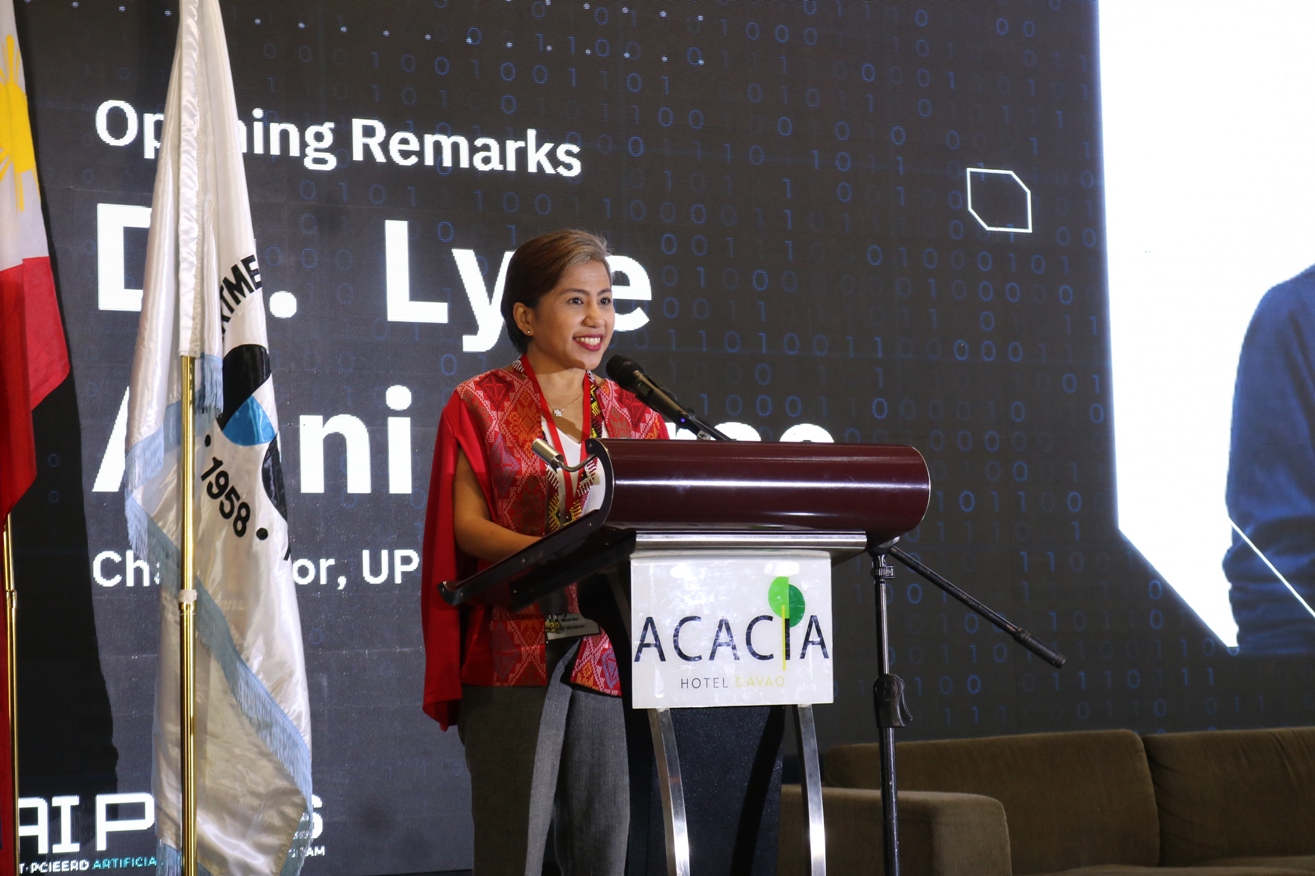
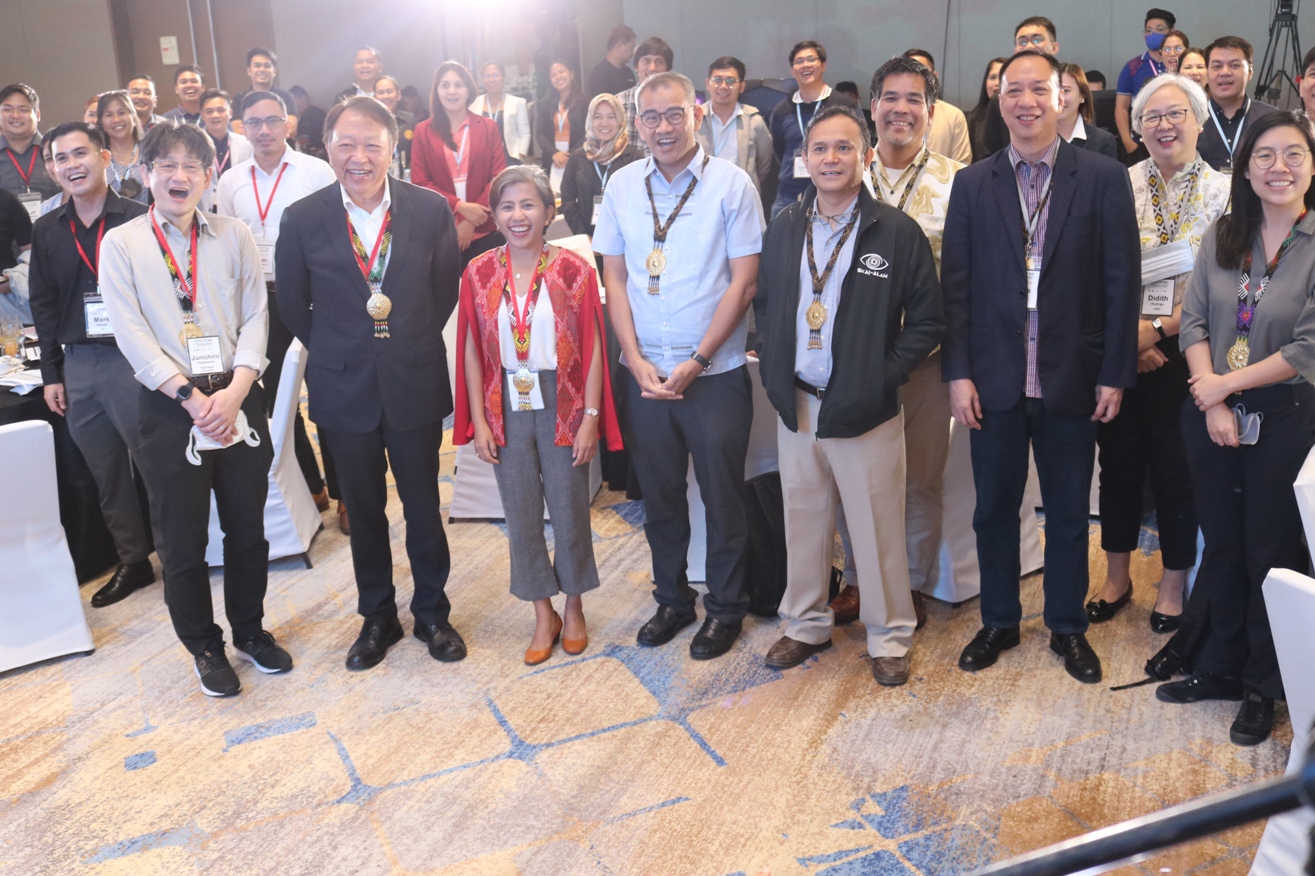
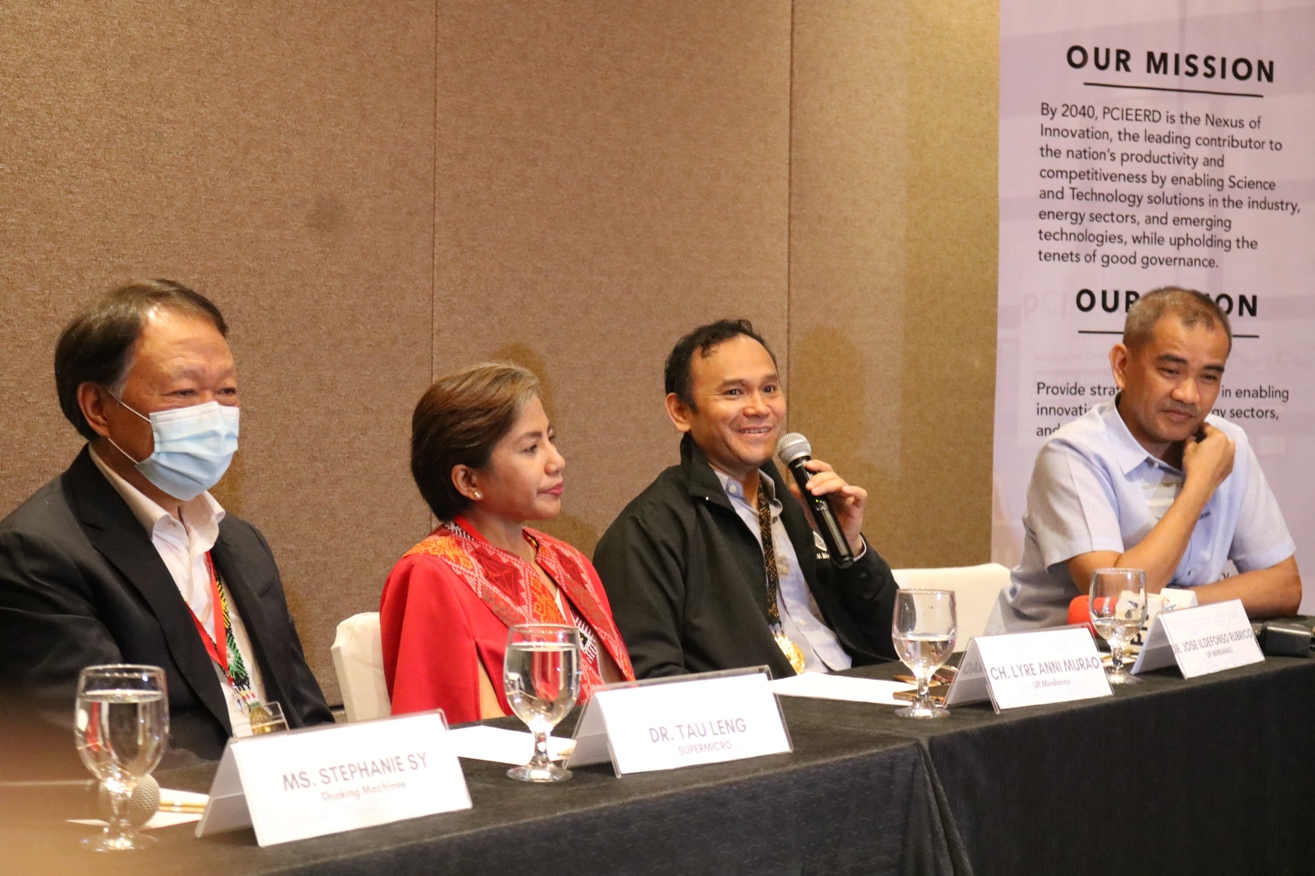
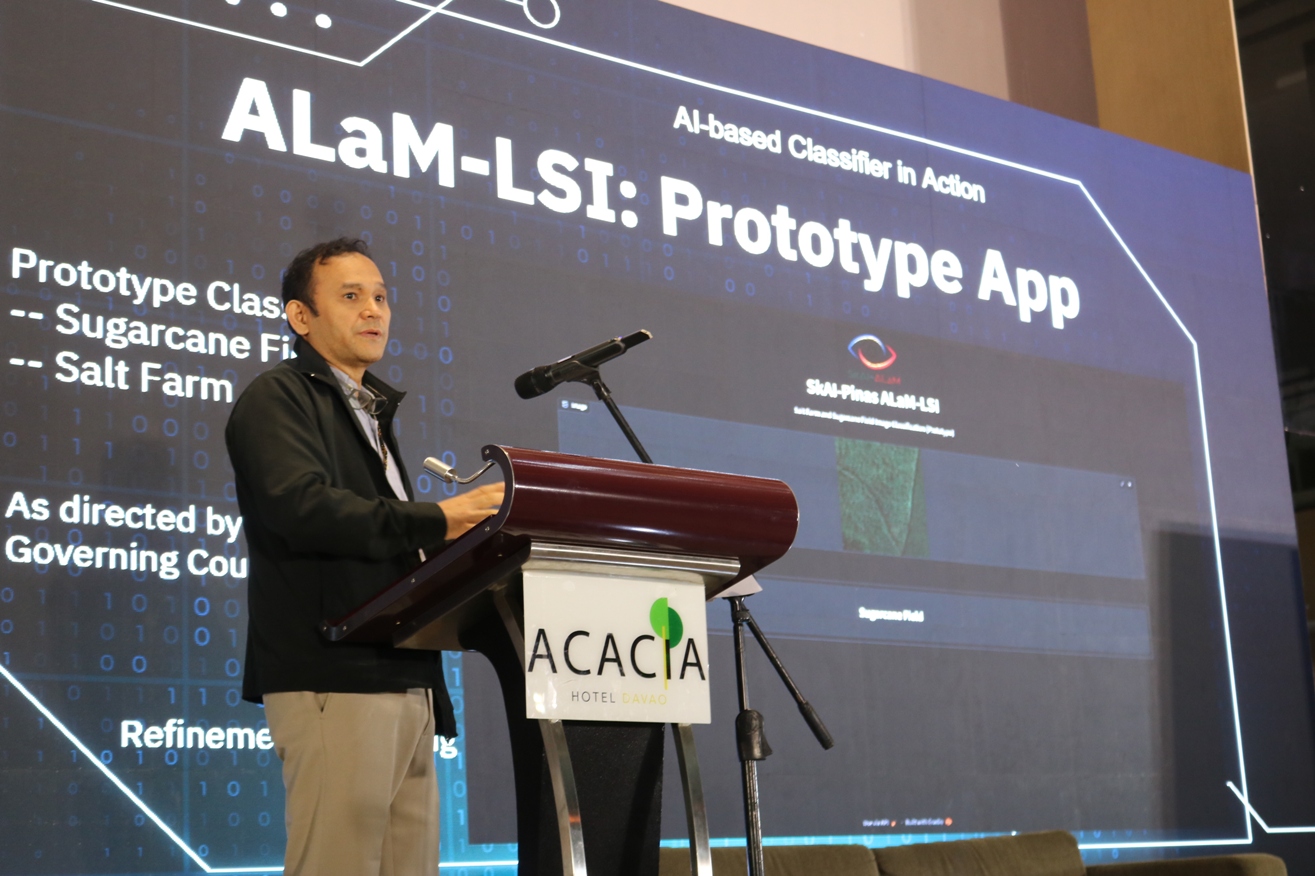
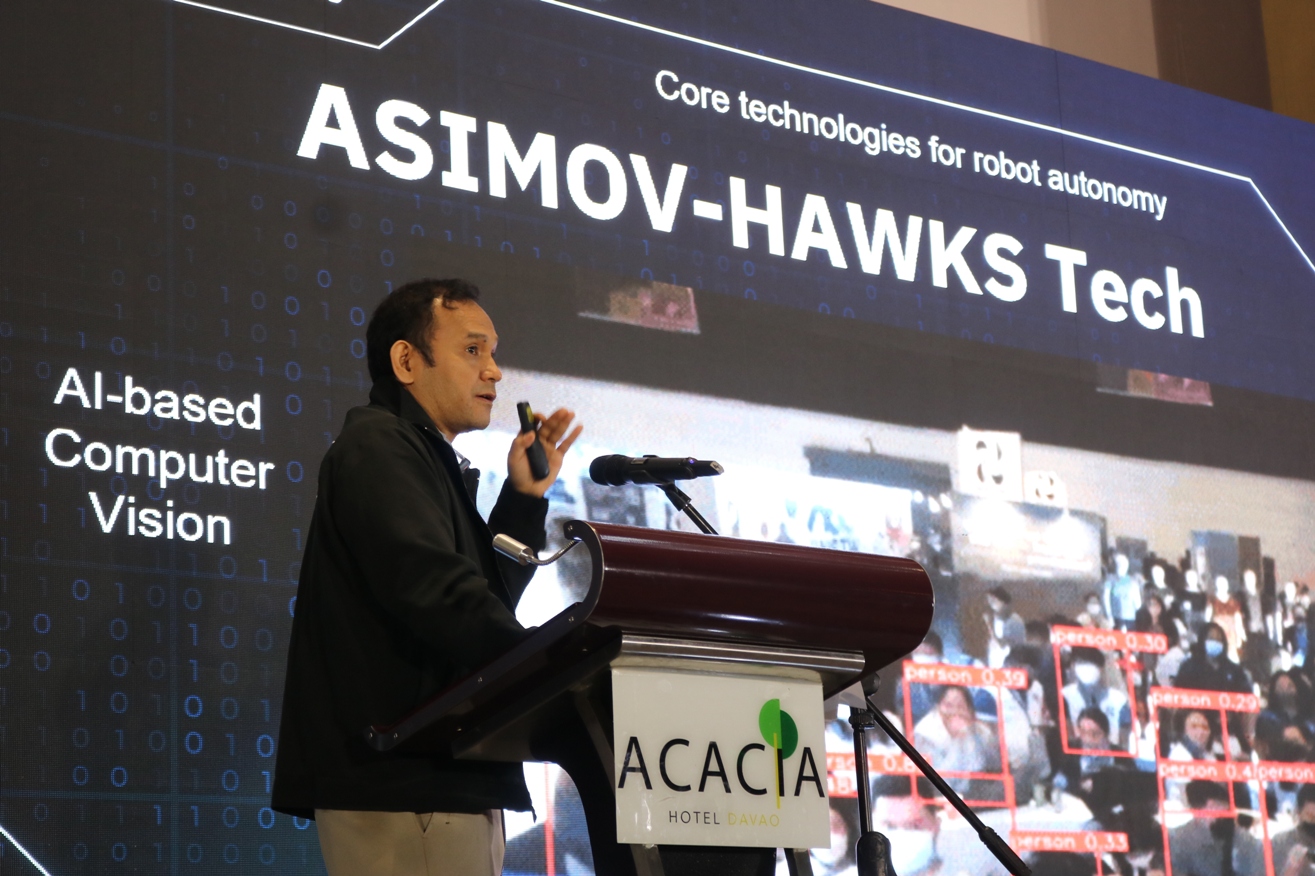
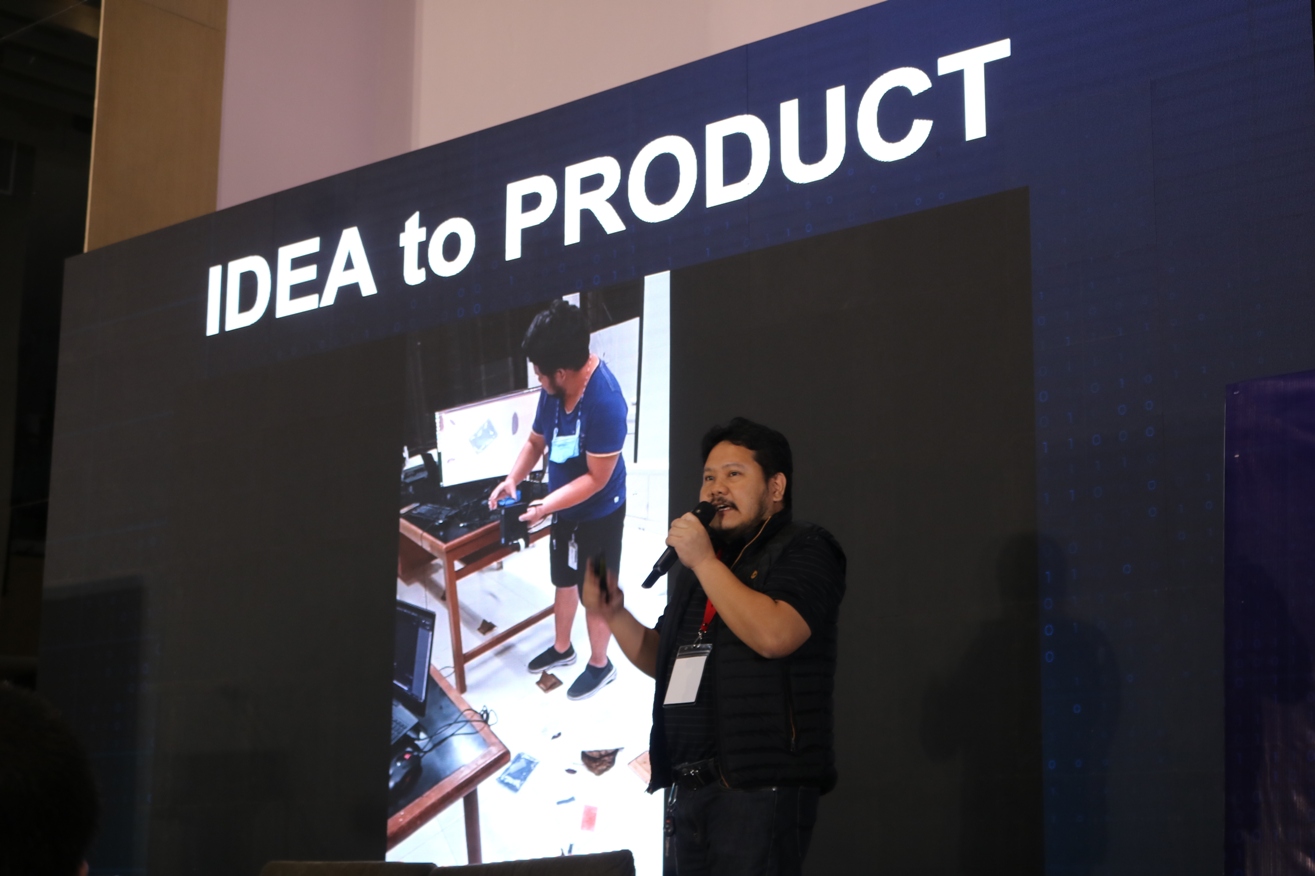
Read articles on the conference here:
DOST-PCIEERD
https://pcieerd.dost.gov.ph/news/latest-news/514-dost-up-mindanao-hosts-ph-s-1st-ai-r-d-conference
https://www.sunstar.com.ph/article/1956080/davao/local-news/up-min-prof-develops-ai-tech-to-help-farmers
https://www.sunstar.com.ph/article/1956297/davao/business/experts-ph-has-potential-to-be-ai-data-center
https://edgedavao.net/latest-news/2023/03/17/upmin-positioning-as-ai-hub-in-the-region/
https://www.sunstar.com.ph/article/1956297/davao/business/experts-ph-has-potential-to-be-ai-data-center
Message of Chancellor Lyre Anni Murao
UP Mindanao is honored and grateful to be the co-host of this 1st AI Pinas Research & Development (R&D) Conference and Workshop. Organized in partnership with the Philippine Council for Industry, Energy and Emerging Technology Research and Development (PCIEERD) and the Advanced Science and Technology Institute (DOST-ASTI), this conference sets in motion the Philippine goal to become an AI powerhouse.
In this age of digitalization and Fourth Industrial Revolution, AI has the potential to reshape the Philippine market by delivering MORE for businesses and organizations—more convenient, more accurate, more efficient, and more useful tools for operations and production.
We need AI in the industries, agriculture, education, healthcare, and government services for a competitive economy, and more responsive and effective public services.
In the private sector, AI has a huge potential to contribute to improving operational efficiency in various fields, such as in healthcare, retail, manufacturing, banking, and many more.
In the public sector, AI can help enhance delivery of public services by automating workflows and tasks of government agencies so that they can effectively cater to the needs of the various clients they are serving.
As the Philippines embraces AI, it invites opportunities for innovation. The unique context of the country is a haven for bright and novel ideas—a venue to inspire Filipinnovation.
Today’s gathering of stakeholders, enthusiasts, and innovators is a celebration of one of the biggest displays of Filipino-inspired research and innovation in the field of AI.
This two-day conference will tackle exciting topics on:
Global trends in AI;
AI for cross-cutting applications/platform;
AI for health and education;
AI for mobility, environment, and disaster risk reduction;
AI for industries;
AI in smart and sustainable communities and cities;
Generative AI; and,
AI ethics and governance.
It is important to note that while there are opportunities, AI also opens up new challenges, such: labor displacement (particularly for the unskilled workforce), technology adoption, skills gaps, job market readiness, and even ethical and governance issues.
In the academe, the recent launch of ChatGPT in November 2022—an AI bot with essay-writing skills and usability—has been met with widespread criticism from educators, journalists, artists, ethicists, academics, and public advocates. Hopefully, the academia will not have huge issues to confront in the coming years with the adoption of this technology.
Well, we know for a fact that, for everything developed by humankind since the discovery of fire and the stone age, there has always been advantages and disadvantages. It is really up to us how we will use them for the betterment of humanity.
The academe, being the generator of knowledge for the advancement of science, technology, and innovation (STI)—is for the responsible use of technology.
At the end of the day, we have ask: for whom is the AI technology we are developing?
Towards the end of this conference, you will be reviewing and updating the AI R&D roadmap. Please reflect on the knowledge, insights, and experiences to be shared in this gathering.
In UP, we are for the responsible and ethical use of innovative technologies for the advancement of the common good.
It goes without saying that we need a strong ecosystem that will support and sustain AI so that it can effectively contribute to the attainment of UN SDG 17 (Advancing science, technology, and innovation for Sustainable Development Goals) in the country… and redound to the improvement of lives of ordinary Filipinos.
Your presence here today signifies your resolve to be part of this growing ecosystem.
I believe my colleagues from the academic community are one with me in saying that we are committed to be an active and vital member of this ecosystem.
We will continue to support the realization of this event’s theme, “AI Pinas: Driving Transformation and Impact in the Digital Age,” by preparing an educational system and developing innovations that will meet the emerging demands of the AI industry that is responsive to the country’s development needs and priorities.
Without much ado, I look forward to a productive two-day conference about the good uses of AI in both the public and private spheres.
Daghang salamat ug padayon!






